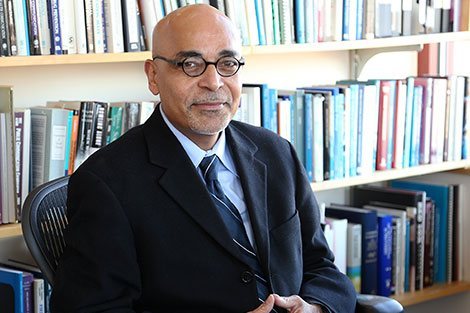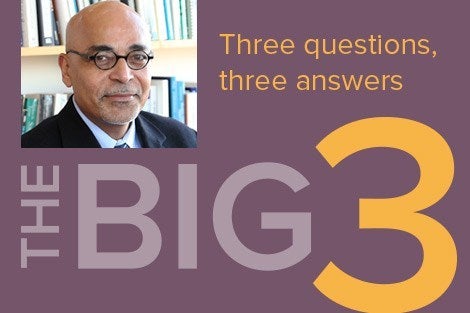Related Topics
Improving health for people with disabilities
May 9, 2014 —The phone call from Ghana clinched Asare Christian’s career path. His grandmother was exhibiting sudden, puzzling symptoms including loss of balance, coordination, and bladder function. To Christian, who was learning about brain injury in his…

Public health leaders explore future challenges
In an interview with the blog Thought Economics, Harvard School of Public Health Dean Julio Frenk, together with several leading experts, reflected on the last century of accomplishments in the field of public health and the challenges and…
Sexual minority youth less likely to buckle up than heterosexual peers
Adolescent lesbians and bisexuals are less likely to use passenger safety belts than their heterosexual peers, according to a new study led by Harvard School of Public Health Research Fellow Sari Reisner. Drawing from data gathered in the…
K. ‘Vish’ Viswanath honored for tobacco control research, mentoring
K. “Vish” Viswanath, professor of health communications at Harvard School of Public Health (HSPH), recently was awarded two national honors. He received the Joseph W. Cullen Award for distinguished achievement in national tobacco control research and advocacy at…

An unhealthy digital divide
January 28, 2014 — K. “Vish” Viswanath, professor of health communication at Harvard School of Public Health (HSPH), is interested in finding better ways to communicate health information to lower-income individuals. He answers three questions about a recent…

Role of lung lesions in tuberculosis explored
For years scientists have sought to unravel the mystery of why about 90% of people infected by Mycobacterium tuberculosis, the bacteria that cause tuberculosis (TB), remain symptom-free for years, while the remaining 10% become sick and may die.…
Winter 2014 Frontlines
[ Winter 2014 ] Quick updates about the latest public health news from across the School and beyond. The end of trans fats? A proposal issued in November 2013 by the U.S. Food and Drug Administration (FDA), if finalized, would…
Tuberculosis experts address role of immune response
Tuberculosis (TB) remains a major infectious disease global threat, with 8.7 million new cases and 1.4 million deaths worldwide reported in 2011 alone. In the United States, an estimated 10 million to 15 million people are infected. With…
Health disparities between nations could be eliminated within a generation
A major new report in The Lancet contends that, for the first time in human history, the current generation has the financial and technical capacity to eliminate health disparities between poorer and wealthier nations. The report, Global Health…
Role of stress in health disparities explored
Twenty-five experts from around the world gathered in Boston recently to discuss the impact of chronic stress stemming from low socioeconomic status and discrimination on health disparities and premature death. The conference was organized by Michelle Williams, Stephen…